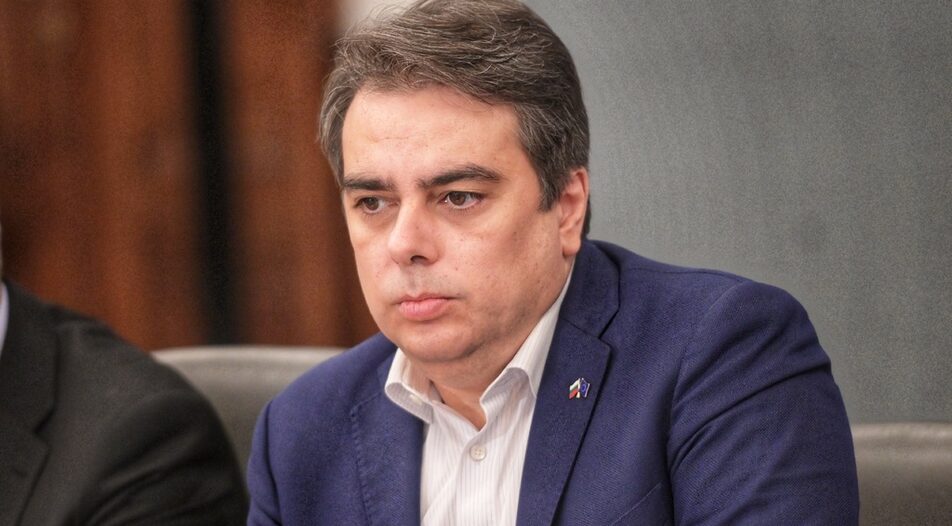In September, the state finances slipped into a significant deficit. According to preliminary data from the Ministry of Finance, the consolidated budget was in a deficit of 780 million levs (398 million euro), equivalent to 0.4% of the projected 2023 GDP.
The finance ministry expects the budget balance to reach the planned deficit of 2.5% of GDP or 4.6 billion levs (2.3 billion euro) in the last three months of the year. This implies two things: first, the state will have to tap into the debt markets, and second, the numerical criterion for a deficit below 3% of GDP needed for entry into the eurozone will be met, at least for now. This also means that over the last three months of 2023, the state will spend nearly 4 billion levs (2 billion euro) more than it expects to collect.
The data for end-September is preliminary and not exhaustive but it shows that revenues have grown more slowly than expenditures. In total, they amount to 47.7 billion levs, an increase of nearly 5.8% compared to September 2022 (or a rise of 1.6 billion levs), while expenses have reached 48.4 billion levs, a 10% increase year-on-year.
What contributed to the deficit
Finance ministry officials point out that the September deficit is due to earlier planned payments to farmers in the amount of 600 million levs. Half of these payments constitute state aid intended "to overcome the negative economic impact of Russia's aggression against Ukraine.
At the end of September, the government requested the Ministry of Energy to return over 401 million levs to the state budget. These funds had been originally allocated the ministry to compensate for high energy prices and to finance fiscal anti-inflationary measures.
It's unclear yet whether this "revenue" has been accounted for, or it will be reflected in the budget balance data at the end of October. Tax revenues have grown by 10% up to September compared to the first nine months of 2022, but the pace of increase is slower than what has been projected for the full year 2023. Additionally, non-tax revenues in the form of aid and donations (primarily grants under EU programs and funds) have decreased by 700 million levs compared to end-September 2022.
The major issue lies with taxes, particularly Value Added Tax (VAT). VAT revenues are considerably lower compared to the previous year, by nearly 186 million levs. However, the state plans to collect 6.1% more this year compared to 2022, which means almost a billion levs more.
The decline in VAT is solely due to lower imports. The Ministry of Finance states that imports have decreased by 16.3% year-on-year in the first eight months of 2023, or by 761.6 million levs. Part of the explanation lies in the lower market prices of many imported raw materials from third countries, as well as a decrease in the quantity of imported goods, the ministry said, likely referring to petroleum and fuels. This is evident in the data on customs duties and fees, which are also lower compared to the previous year.
According to the finance ministry, the possibility of deferred VAT payment for imports has also affected the revenue side of the budget. However, there is an annual increase in VAT revenue from domestic transactions in January-August, of 10.8%. The indirect tax collected is 602.6 million levs.
Regarding other tax revenues, there is growth compared to 2022, but it falls short of targets. The exception is excise revenues, which have increased by 4.5% by the end of August, exceeding the expected full-year growth rate of 2%. More than half of these revenues come from excise levied on cigarettes and other tobacco products.
In September, the state finances slipped into a significant deficit. According to preliminary data from the Ministry of Finance, the consolidated budget was in a deficit of 780 million levs (398 million euro), equivalent to 0.4% of the projected 2023 GDP.
The finance ministry expects the budget balance to reach the planned deficit of 2.5% of GDP or 4.6 billion levs (2.3 billion euro) in the last three months of the year. This implies two things: first, the state will have to tap into the debt markets, and second, the numerical criterion for a deficit below 3% of GDP needed for entry into the eurozone will be met, at least for now. This also means that over the last three months of 2023, the state will spend nearly 4 billion levs (2 billion euro) more than it expects to collect.












